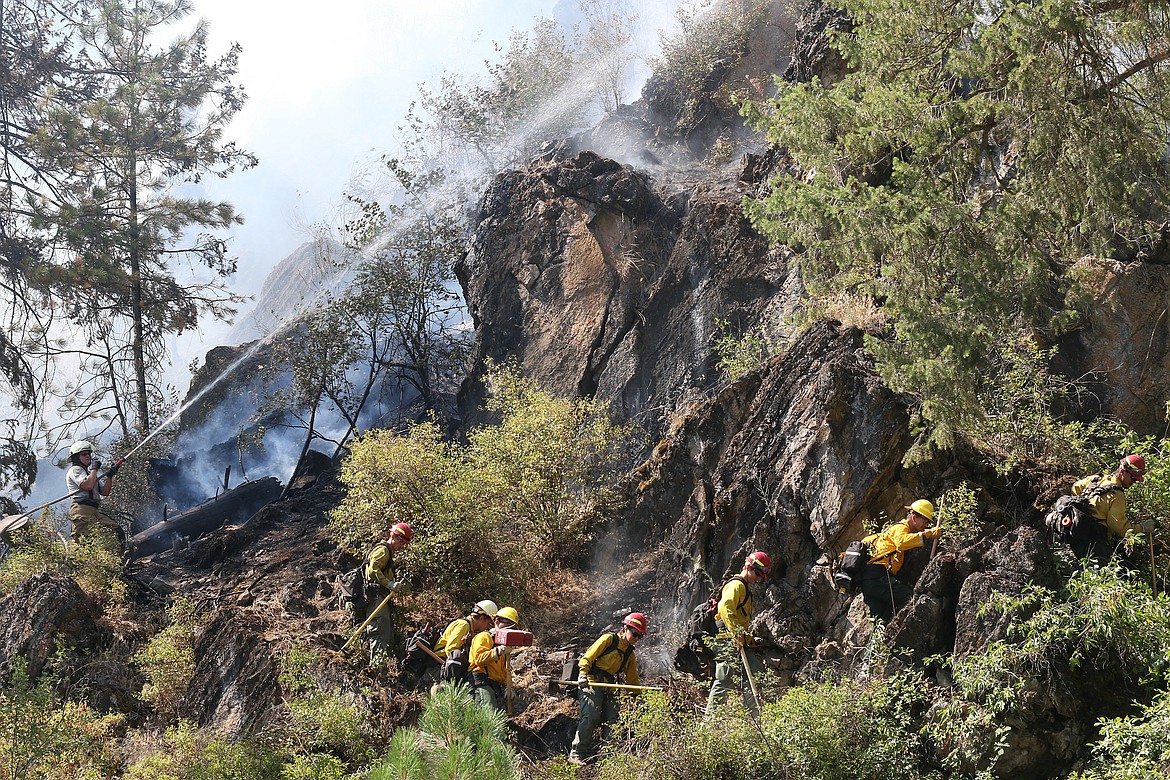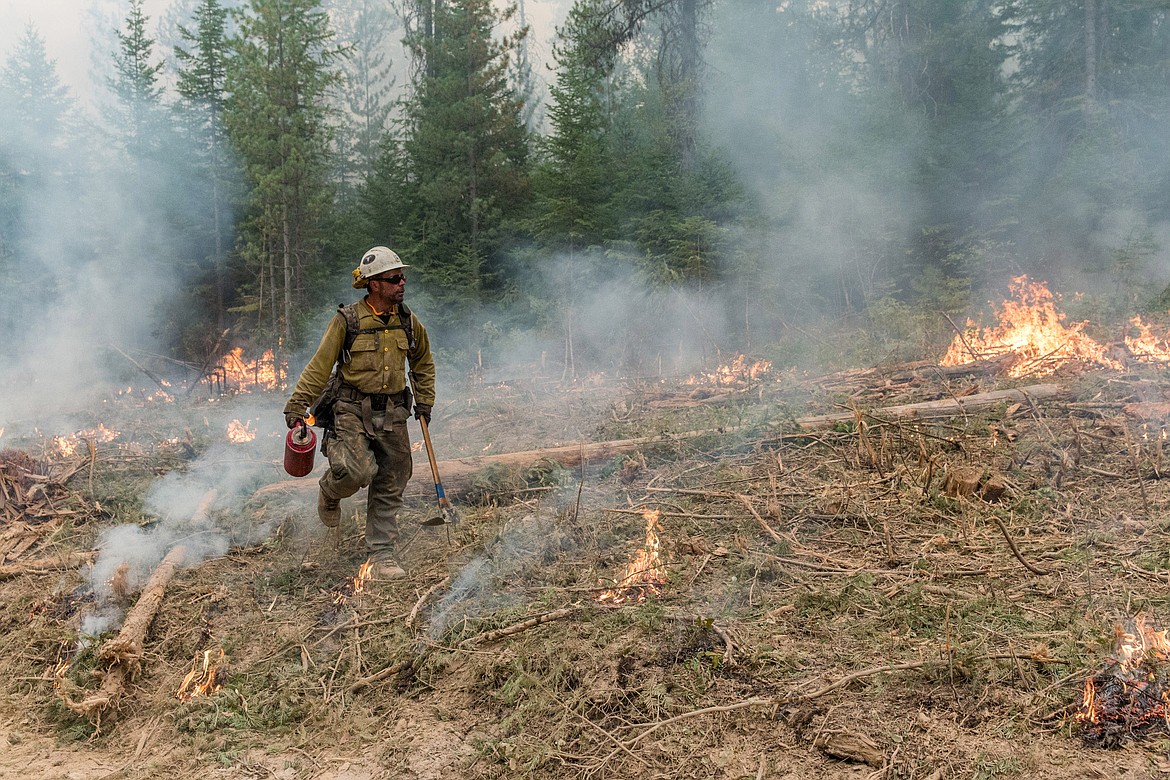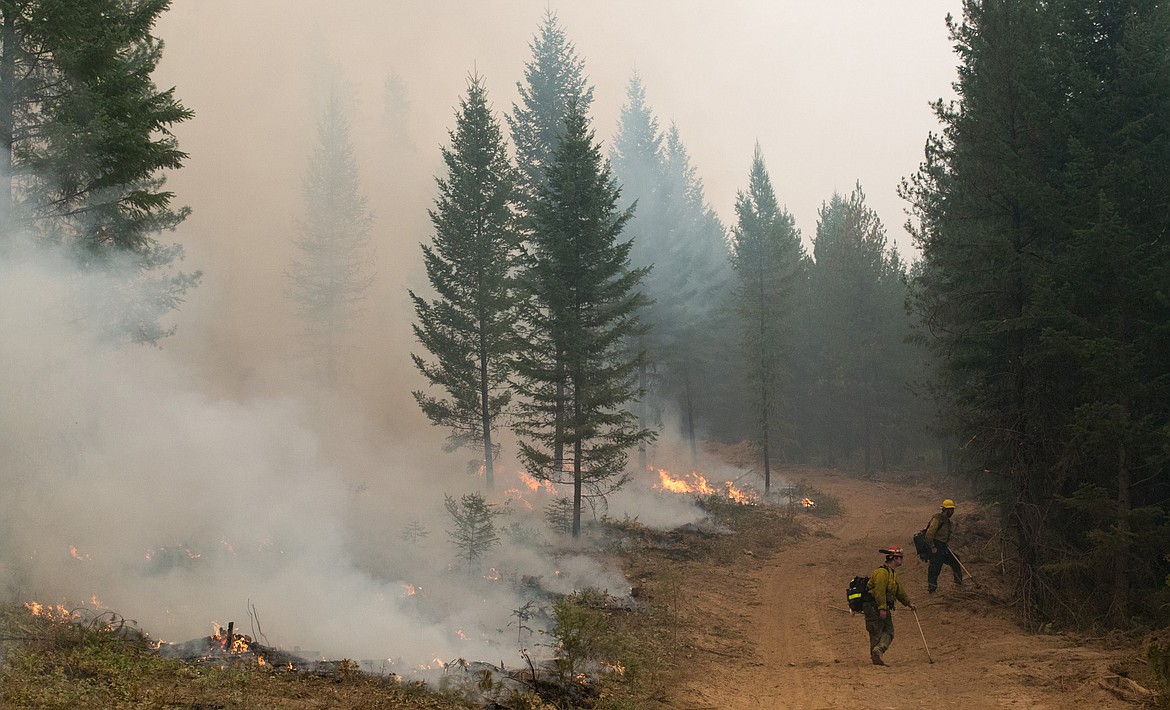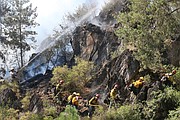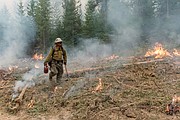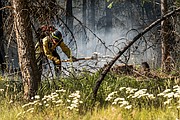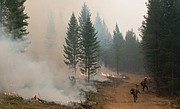County to fund future air monitoring
The Lincoln County Board of Commissioners agreed June 1 to underwrite air quality monitoring in the area near the former vermiculite mine in the event of a future wildfire.
Were a blaze to break out in the area, located off of state Highway 37 just north and east of Libby, emergency management officials would face the multifaceted challenge of fighting a fire while preparing for potentially contaminated ash and smoke enveloping the nearby county seat. Libby Amphibole asbestos, also known as LA, contained in tree bark and duff likely would be released, but remain bound in the ash.
While the contaminated ash poses the most immediate risk to firefighters on scene, a plume-dominated fire could deposit the ash in the surrounding area, including Libby proper.
In the past, the Montana Department of Environmental Quality has funded air quality studies in the region, but that’s no longer the case, said Virginia Kocieda, Asbestos Resource Program director.
Although a variety of government agencies would respond to a possible fire in the area, to include the DEQ, EPA, U.S. Forest Service and state DNRC, none have agreed to pay for future community air monitoring, Kocieda told commissioners. The Forest Service will provide “cockpit monitoring,” basically checking the air at the level where firefighters piloting aircraft would be operating in the event of a blaze.
Without funding, local health officials cannot determine how to advise residents to respond, Kocieda said.
“A lot of this messaging is dependent on the data we generate,” she told commissioners. “The data generated is given to the [county] health department and health officer for deciding if it’s safe for the community to stay in the area in the event of a fire.”
Asked how much future testing would cost, Kocieda estimated about $4,577. To come up with the figure, she included the cost of collecting samples for 72 hours, travel expenses, labor, shipping fees to get the data to a New Jersey-based lab and the price associated with analyzing the information.
“If we don’t have funding, we can’t collect data,” she said.
County Commissioner Jerry Bennett (D-2) noted prior to the unanimous vote in favor of funding the monitoring that the cost to the county directly related to the prevalence of forest fires in the area.
“It may be an expense, it may not be an expense,” he said. “We could go four years or five years [without] or have one every year.”
Brent Teske, the county’s emergency management head when not serving as Libby’s mayor, told commissioners that the area is not known for fire activity.
“Traditionally, there has not been a lot of activity up there, but there is the potential,” he said.
Commissioner Mark Peck (D-1), who represents Libby on the board, said he expected the county would receive reimbursement. A scenario including a fire large enough to warrant air quality monitory likely would include a declaration of emergency, he said.
“If it’s a big fire, we’re going to be a in a declared emergency, so we can pay for it through the emergency side of things,” he said. “I can’t think of too many times the county would get stiffed on this.”
Much of the debate centered over when a fire would trigger the air monitoring. Peck initially pitched waiting until a fire exceeded 50 acres.
Kocieda argued for starting monitoring as quickly as possible.
“The public perception of us not monitoring is going to be our enemy,” said Jennifer McCully, the county’s public health manager.
She also encouraged commissioners to act early. Residents have experience with forest fires and will find a blaze near the former vermiculite mine concerning, she said.
“I think it comes back to the public perception of what we’re doing,” McCully said. “People around here have been around fires. They know smoke travels. They know ash travels. So they see smoke coming and they want to know.”
Peck conceded that it might amount to a judgment call, decided fire-by-fire.
“If a fire gets up and running, we don’t want to wait,” he said.
Commissioners left that question undecided, but confirmed the county would initially cover the cost of monitoring and later seek reimbursement. Peck said he imagined they could pressure W.R. Grace, which operated the vermiculate mine in its heyday, to pitch in on the final tab.
Bennett made the motion to approve funding for a year, to be reviewed after 12 months. County Commissioner Josh Letcher (D-3) seconded the motion.


